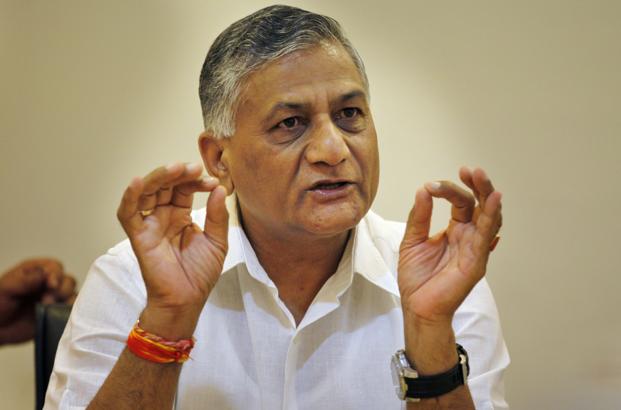MANILA: India has called for a “cohesive response” to tackle terror financing and the growing threat of violent extremism and radicalisation.
Speaking at the 7th East Asia Summit Foreign Ministers’ Meeting here on Monday, Minister of State for External Affairs V K Singh said the countries should work together to ensure adherence to and implementation of the UN Security Council Resolutions on countering terrorism.
“In an era when networking amongst terrorists is reaching critical mass, a cohesive response which should include blocking of terror financing, countering the use of Information and communication technology (ICT) for terrorism purpose as well as countering the spread of violent extremism and radicalisation is the need of the hour,” Singh said.
“We should work together to ensure adherence to and implementation of United Nation Security Council Resolutions on Countering Terrorism, in particular resolutions no 1267 and 2354, in letter as well as in spirit,” he said in a statement.
Singh said India was of “firm belief” that connectivity initiatives must be based on universally recognised international norms, good governance, rule of law, openness, transparency and equality.
He said India shared the international communities desire for enhancing physical and softer forms of connectivity and believes in transparent development of infrastructure and the use of responsible debt financing practices while underlining respect for sovereignty and territorial integrity.
Noting that shared prosperity demands cooperation, Singh said secure and open sea lanes were critical for peace, stability, prosperity and development.
“India reiterates the importance of freedom of navigation and overflight on the high seas, unimpeded lawful commerce, as well as resolving maritime disputes by peaceful means, in accordance with universally recognised principles of international law notably the 1982 UN Convention on the Law of the Sea,” he said.
“Making Maritime cooperation a priority and central to our discourse will contribute to fostering, among us, a sense of creation of a maritime community, with common interests and purpose and to empower us to respond effectively to the shared maritime challenges of the region,” he said.
He said from the Indian perspective, Association of South-East Asian Nations (ASEAN) occupied a “central place” in the security architecture of the Asia-Pacific region.
“It is our view that ASEAN, placed at the cultural, commercial and physical cross-roads of the region, has a unique ability to reflect and harmonise larger interests of the world beyond it,” Singh said.
“ASEAN has celebrated this ability by playing a critical role in conceptualising and implementing the East Asia Summit process,” he said. (AGENCIES)


